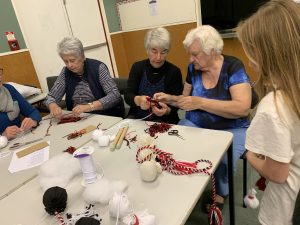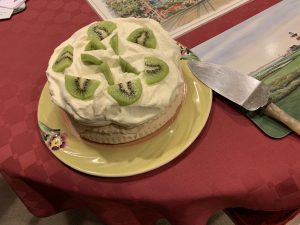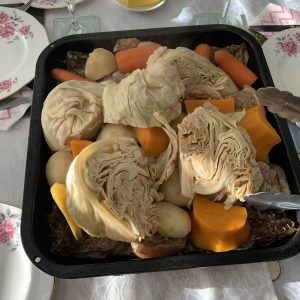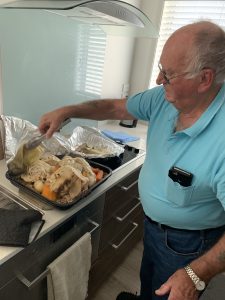Tag Archive
activity architecture art artist building Canada children city CostSaver downtown drive i-95 entertainment Europe event exhibit family festival Florida food fun historic History landmark local Museum music Nature New Zealand Ontario roadtrip sculpture Seattle show sights sightseeing tour tourist Trafalgar travel travelblogger view Washington Washington State water world
New Zealand: Cambridge – New Zealand’s Favorite Pavlova
When traveling it’s always interesting to look for and try foods which are favorites in that country. This Pavlova was made with layers of whipped cream, wafers – and kiwi of course! Our list in New Zealand included hokey-pokey ice-cream (fabulous vanilla with toffee bits), Kumara fries (like sweet potato) and white bait fritters (fish). Sandra’s all time favorite was the Anzac oatmeal cookies which were developed for troops in the Second World War by the army corps to last awhile while on the move. They are hard to bite but softened up deliciously as you eat them. Anzac = Australia New Zealand Army Corps.
New Zealand: Cambridge – All Ages Gather to Sing in New Zealand
We were lucky enough to be invited to a Maori cultural group to mingle with women and children. We learned the craft of making instruments. And then we enjoyed singing along (with song sheets) with everyone from kids to their grandparents. All ages joined together to sing – and the kids knew all the words! People are wonderfully inviting all over the world.
New Zealand: Cambridge – Maori Neighborhood Gathering
Just like all over the world, people of similar backgrounds form social circles to keep their heritage intact. In Cambridge, NZ, we were invited to this Maori gathering to make our own poi balls. The balls are attached to long strings and swung rhythmically, one in each hand. Today, the women dancers perform the Maori poi. Men used it for strength and coordination and they were also used as a weapon during a battle. It is really hard to spin those balls. 
New Zealand: Hamilton Gardens – Traditional Maori Garden in New Zealand
In the Te Parapara Garden in Hamilton Gardens, NZ, traditional (to Maori) rare kuumara (sweet potato) varieties are planted on puke (mounds) in the summer and then harvested. 
New Zealand: Hamilton Gardens – Maori Garden
Here is the traditional entrance to the Te Parapara Garden in Hamilton Gardens, NZ. Notice the carved face sticking out his tongue. This is a gesture you would see in Maori dancing and is a method of intimidating invaders.
New Zealand: Cambridge – Maori Hangi Meal, New Zealand
In the Maori tradition, Hangi, was the preparation of food traditionally wrapped in flax leaves and placed on hot stones at the bottom of a deep pit in the ground. It got it’s name as this earth oven was called a hangi. The food is covered with wet cloth and a mound of earth traps the heat from the stones around the food. The meal is left in the ground for 3-4 hours.








